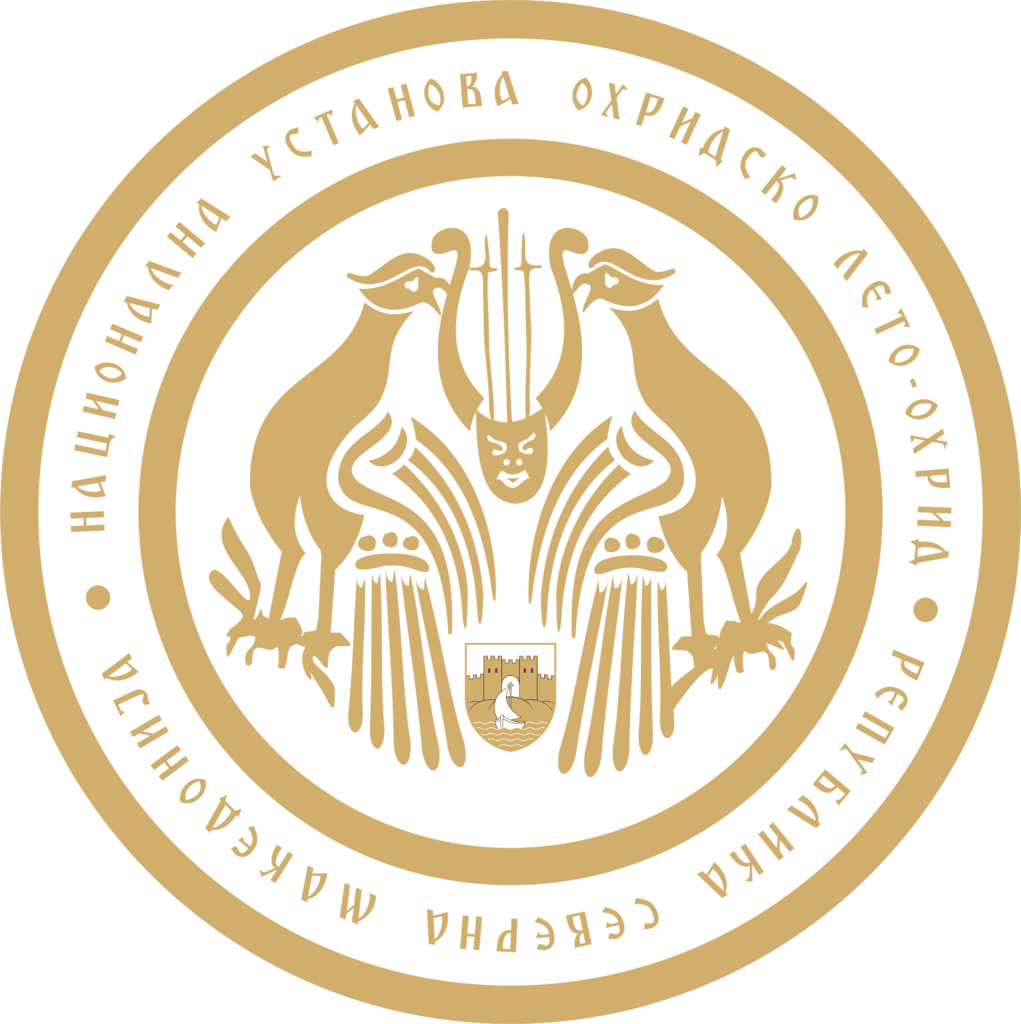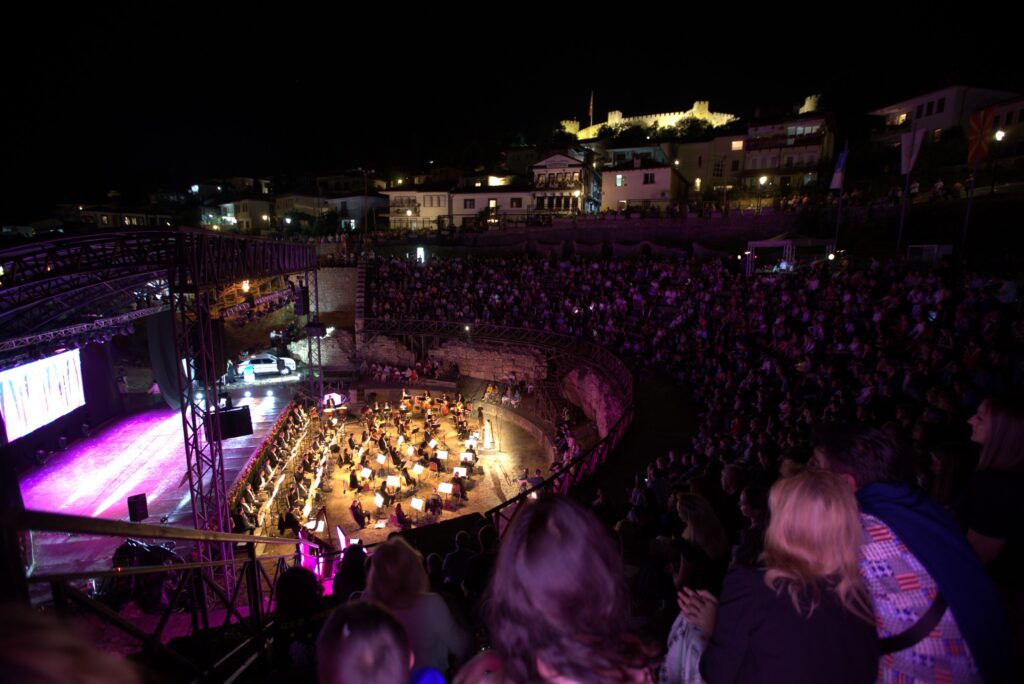Hope in classical art
Is there still a need of modern man for classical art set in its original original form? In the sea of countless bizarre attacks and new forms of self-expression in the form of media, social networks, but also the fight against an invisible enemy dangerous to life, is it still that classical art is a respite from everything that lurks in front of us? Do we have the capacity to learn about classical art? Somehow these questions naturally arise before the beginning of the new sixty-first edition of “Ohrid Summer” and the concert dedicated to classical ballet and romantic music by Tchaikovsky for the act of the opening ceremony of the festival.
For the past sixty years, “Ohrid Summer” is constantly looking for new artistic achievements, new creative constellations that will preserve the place of the festival as the most prestigious music and stage event in our country and as a recognizable artistic symbol of Ohrid and Macedonia in the world. Taste and aesthetics change, but the need for the beautiful remains a constant in each new generation. New ideas and forms that convey the artistic impulse always lead to progress in life and in art and they reflect the constant thirst of artists to create authentic and unique works. And yet … classical art still captures the attention of millions and especially in the “difficult moment” we are in, it gives us hope … Hours and hours spent practicing, violin, harp, cello or pointed sneakers, whatever, they give birth to a valuable spiritual creation that equally touches and does not leave indifferent both the one who creates it and the one who enjoys it. That is the hope that classical art gives you …
Undoubtedly, everyone who participated in the creation of the idea and character of this year’s Gala Ballet Concert for the grand opening probably intuitively penetrated that the large audience in the magical ambience of the Ancient Theater after many months of waiting, with obvious excitement will allow to carry and touch her .. .the good old classical art.
And maybe someone, the collage of the most brilliant excerpts from Tchaikovsky’s ballets, will experience it as something that has passed its time … On the contrary, in the moment of liberation from the general almost two-year stagnation, suffering and uncertainty, the glow in Tchaikovsky’s music and his timeless we perceive ballets as a starting point or a return to the beginning, if you will.
Toward the concert
In the inspiring speeches before the concert Olga Pango on behalf of the artists, the Minister of Culture Irena Stefoska and the President Stevo Pendarovski reminded us of the essential need of the artists for stage expression, the need for the beautiful as a way out of all troubles and for what we should constantly remind ourselves of … the grace that Ohrid so generously gives us and which we should keep as the most precious gift. Because Ohrid is not only history, spirituality, architecture and natural rarity, Ohrid has been music, dance, drama for sixty summers, “Ohrid Summer” weaves the artistic inspirations of countless artists in the energy of the city and thus makes it even more special .. unique …
With such strong inspiration and enthusiasm and will to meet again with the audience and the stage, the entire artistic team of the National Opera and Ballet approaches the project “The Big Tchaikovsky”, thus building on the traditionally successful connection with the Ohrid Summer Festival. We remember “Carmina Burana” from exactly thirty years ago, “Macedonian story” from the nineties, “Lady Macbeth”, “I Isidora”, “Tango fragments”, “14 hours” in the new millennium, until last year’s “Bolero”. under masks …
This time, the idea to present Tchaikovsky in a difficult moment, when humanity is trying to get out of the challenge brought to us by the past 2020 and this year, and with such enthusiasm to place over 90 of our domestic artists on the stage seems inevitable. and we experience it as a cry and a longing for art to triumph over temptation. Because exactly that Tchaikovsky, as one of the greatest composers given by Russian music history in his creative character, unites the deep connection with his native country, still allowing influence from Western European culture, universal life values and what especially marks his ballet music – a reflection of intimate and emotional sensibility. Tchaikovsky’s ballets “Swan Lake”, “Sleeping Beauty” and “Nutcracker” take us back to a fantastic fairytale and extinct world, and indeed, you need to have enough good emotions to be able to indulge in it. However, dance, most of all arts, symbolizes the joy of living and that is why we believe that “The Great Tchaikovsky” will bring us back exactly the same, joy and optimism.






